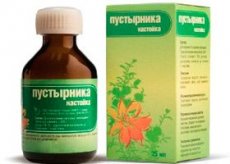Medical expert of the article
New publications
Preparations
Motherwort tincture in pregnancy: to take or not to take
Last reviewed: 04.07.2025

All iLive content is medically reviewed or fact checked to ensure as much factual accuracy as possible.
We have strict sourcing guidelines and only link to reputable media sites, academic research institutions and, whenever possible, medically peer reviewed studies. Note that the numbers in parentheses ([1], [2], etc.) are clickable links to these studies.
If you feel that any of our content is inaccurate, out-of-date, or otherwise questionable, please select it and press Ctrl + Enter.

Considering that the question of whether motherwort tincture can be used during pregnancy is asked quite often, we decided to look into the therapeutic possibilities of this popular herbal sedative.
Indications for the use of motherwort tincture during pregnancy
The question mark in the title of this section is not accidental. You have probably come across statements that motherwort (Herba Leonuri) during pregnancy simply has no alternative in the fight against increased anxiety and nervous tension, which often accompany pregnancy…
But, according to the official instructions, there are only contraindications to the use of motherwort tincture during pregnancy and lactation. The reason would seem obvious: such a medicinal form as tincture (or alcohol extract) is always made on purified 40-90% medical alcohol, and motherwort tincture prepared on 70% alcohol is no exception.
The general calming effect of motherwort tincture determines the range of indications for its use: increased level of nervous excitability, neurosis, hysterical state, asthenic syndrome, problems with falling asleep. However, first of all, this medicinal plant is used as an effective cardiotonic agent, increasing the strength of myocardial contractions and slowing their rhythm in tachycardia. Motherwort helps many people with the initial stage of arterial hypertension.
It should be borne in mind that among the general contraindications of this tincture, in addition to pregnancy, arterial hypotension, exacerbation of ulcerative diseases of the gastrointestinal tract and childhood are noted. And in case of liver pathologies, alcoholism, brain diseases and craniocerebral injuries, this medicine should be used with great caution.
Pharmacodynamics of motherwort tincture during pregnancy... and not only
For those who believe that only the presence of alcohol causes contraindications to the use of motherwort tincture during pregnancy, information about the mechanism of pharmacological action of this remedy will help to understand this issue. And the effect of motherwort on the body is associated with its chemical composition.
According to the analysis of the biochemical composition of motherwort, it contains cardiac glycosides (or cardiotonic steroids). They have a special effect on the membranes of the cells of the sensory nerve endings of the myocardium and vagus nerve, which leads to increased systolic contractions of the heart and, at the same time, to an extension of diastole. As a result, the heart begins to work in a more "economical" mode, blood circulation is normalized, which, of course, has a positive effect on the functions of all organs. In particular, the kidneys begin to work more actively, which is associated with the diuretic (diuretic) effect of cardiac glycosides.
Motherwort contains flavonoids (quercetin, quinqueloside, cosmosiin) and flavonols (rutin, hyperoside, kaempferol), which have a hypotensive effect, that is, they weaken the tone of the walls of blood vessels. Therefore, motherwort tincture reduces blood pressure.
Bitter glucosides of the iridoid group (leonuride, haliridoside, ajugol), found in the desert grass, work as tranquilizers and have a calming effect. This plant also contains organic and phenolic carboxylic acids, coumarins and saponins, tannins, terpenes, sterols, etc.
Why is motherwort tincture contraindicated during pregnancy?
Perhaps, when recommending a pregnant woman to calm her nerves with the help of a “harmless” and “completely natural” motherwort tincture, the doctor simply does not have a clear idea of its composition. We will not talk about all the mentioned substances found in motherwort herb, but will focus on only two – leonurine and L-stachydrine.
The biologically active motherwort alkaloid leonurine is studied by pharmacologists all over the world, as the spectrum of its therapeutic possibilities is extremely wide. It is an antioxidant and neuroprotector, exhibits cardioprotective and anti-inflammatory properties. Another alkaloid - L-stachydrine (a derivative of N-methylpyrrolidine-a-carboxylic acid) - due to the presence of a pyrrolidine core, belongs to psychoactive substances that excite neurotransmitters of the nervous system, stimulating the brain. In addition, both of these alkaloids have a uterotonic effect on smooth muscles, including the muscular wall of the uterus, increasing the contractile activity of the myometrium.
In folk medicine, since time immemorial, motherwort has been used to treat various female diseases (for example, painful menstruation), and decoctions were also drunk when menstruation was delayed. This plant was used not only by our healers: the stimulating effect of motherwort decoction on the uterus was recognized by healers of the Delaware, Cheyenne, Cherokee, and Navajo Indian tribes. This medicinal plant was and is still used in China in the same way.
In general, it is now completely clear to everyone that motherwort tincture should not be taken by pregnant women. And in the series "Monographs on selected medicinal plants" in 4 volumes, published by WHO in 1999-2009, it is written in black and white: motherwort tincture during pregnancy, as well as other medicinal forms of preparations with motherwort - water infusions and decoctions - are contraindicated.
Attention!
To simplify the perception of information, this instruction for use of the drug "Motherwort tincture in pregnancy: to take or not to take" translated and presented in a special form on the basis of the official instructions for medical use of the drug. Before use read the annotation that came directly to medicines.
Description provided for informational purposes and is not a guide to self-healing. The need for this drug, the purpose of the treatment regimen, methods and dose of the drug is determined solely by the attending physician. Self-medication is dangerous for your health.

